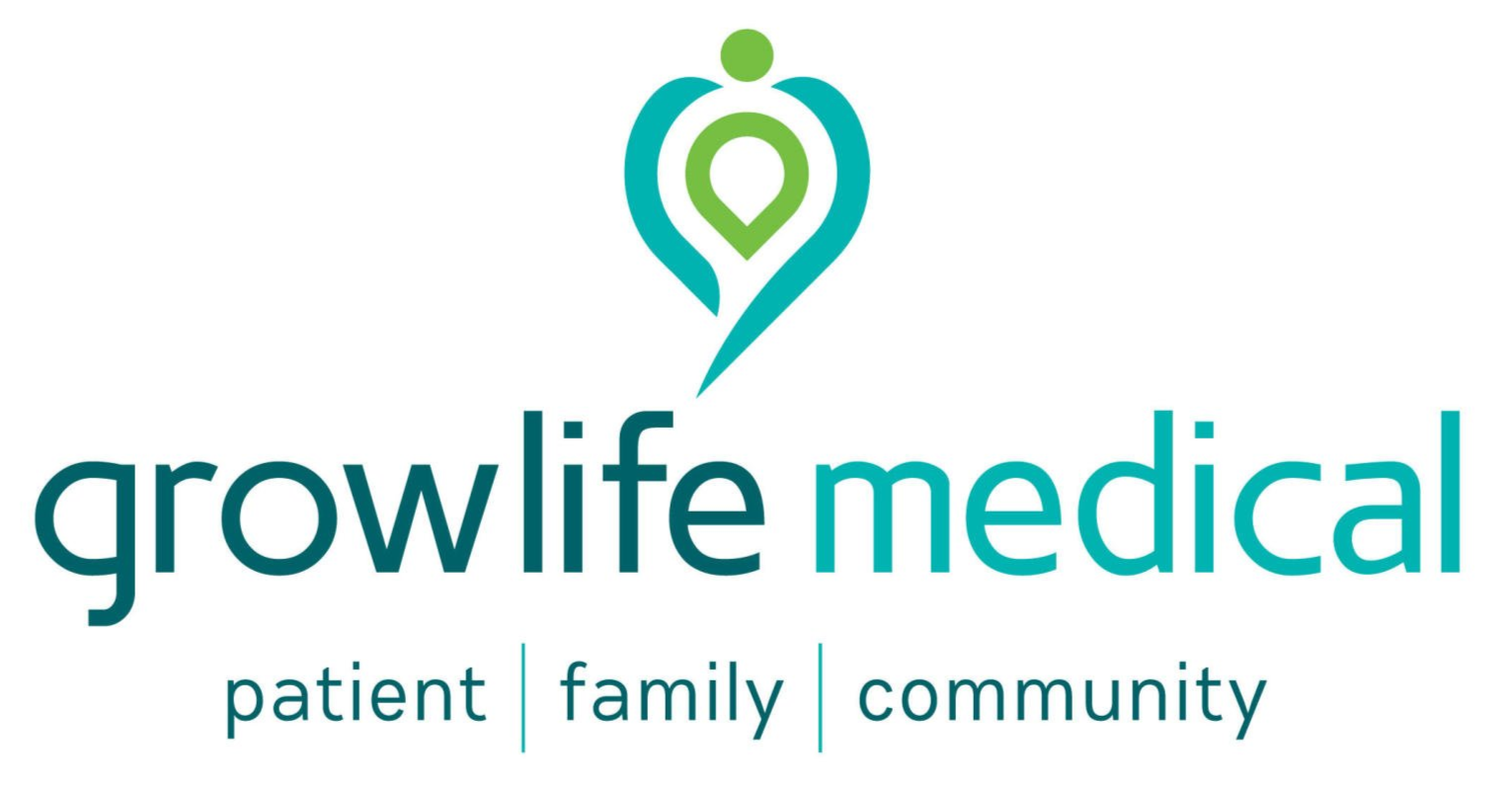Eating Disorders
Eating disorders are a common mental illness which affect a wide variety of people. Growlife Medical explain what an eating disorder is, the different types, risk factors for eating disorders, member's and roles of the treatment team and what to do if you suspect you or someone you love may be experiencing an eating disorder.
What is an Eating Disorder?
Eating disorders are complex, life-threatening mental illnesses and they are treatable. They are estimated to affect 4% of Australians and have the highest mortality rate of any mental illness. Eating disorders are commonly misunderstood, they are not always about a person wanting to change or control their body’s weight and/or shape. They can affect all people, regardless of age, size, gender, and cultural background.
According to the Inside Out Institute (2023), “Eating disorders are defined by changes in behaviours, thoughts and attitudes to food, eating, weight or body shape that interfere and detrimentally impact upon an individual’s life.”

Types of Eating Disorders
There are several different types of eating disorders, as outlined in the diagnostic and statistical manual VI (DSM5), each with unique characteristics. Below is an outline of the different types of eating disorders and related experiences:
- Anorexia Nervosa (AN) - is "characterised by extreme food restriction, significant weight loss and an intense fear of gaining weight.” (Inside out institute, 2023)
- Bulima Nervosa (BN) - is "characterised by episodes of binge eating followed by compensatory behaviours, which are intended to prevent weight gain.” (Inside out Institute, 2023).
- Binge eating disorder (BED) - “characterised by recurrent episodes of binge eating, which involves eating a large amount of food in a short period of time. During a binge episode, the person feels unable to stop themselves eating, and it is often linked with high levels of distress. A person with BED will not use compensatory behaviours, such as self-induced vomiting or overexercising after binge eating.” National Eating Disorder Collaboration (2023)
- Avoidant Restrictive Food Intake disorder (ARFID) - “is a serious eating disorder characterised by avoidance and aversion to food and eating. The restriction is NOT due to a body image disturbance, but a result of anxiety or phobia of food and/or eating, a heightened sensitivity to sensory aspects of food such as texture, taste or smell, or a lack of interest in food/eating secondary to low appetite” National Eating Disorder Collaboration (2023)
- Other Specified Feeding and Eating Disorder (OSFED), previously known as Eating Disorder Not otherwise specified (EDNOS) - is "...a person with OSFED does not meet the criteria to be diagnosed with another eating disorder, however, is presenting with many of the symptoms of other eating disorders. OSFED is just as serious as other eating disorders and is associated with complex medical and psychiatric complications. A person with OSFED may present with many of the symptoms of other eating disorders such as anorexia nervosa, bulimia nervosa or binge eating disorder but will not meet the full criteria for diagnosis of these disorders. This does not mean that the eating disorder is any less serious or dangerous.” (National Eating Disorder Collboration, 2023)
- Unspecified feeding or eating disorder (UFED) - “Applies to where behaviours cause clinically significant distress or impairment of functioning, but do not meet the full criteria of any of the feeding or eating disorder criteria.” (Eating disorder’s Victoria, 2022).
Orthorexia is not considered an eating disorder despite affecting how a person eats and relates to food with negative impacts upon a person’s health and functioning. Orthorexia is a term used to describe an obsession with eating only those foods which are considered ‘healthy’ and avoidance of ‘unhealthy foods’. Although a person with orthorexia may not necessarily be underweight, they can still be undernourished.
It can be helpful to think of eating behaviours as occurring on a spectrum with a healthy relationship with food and body existing at one end and eating disorders sitting at the opposite end of the spectrum. In between there are varying levels of disordered eating which do not met the diagnostic threshold, but can still negatively impact on a person’s wellbeing and quality of life. Eating disorder hope (2023), explains that disordered eating is “when an individual regularly engages in abnormal eating patterns or food behaviors.” It is also recognised that disordered eating can lead to the development of an eating disorder.
Risk factors for Eating Disorders
There are a number of factors which can place an individual at higher risk of developing an eating disorders. These include but are not limited to:
- A history of dieting and weight loss attempts. In fact, dieting is widely recognised by experts as being a very strong risk factor for the development of an eating disorder. This includes being exposed to diet culture in the family home, at school and through social media.
- Genetics, for example, having a parent or family member who has experienced an eating disorder
- Personality traits for example perfectionism, obsession, impulsivity. It is not uncommon for people who experience an eating disorder to be a high achiever and to believe they are fine. It is important to note that despite excelling across various areas of their life, if the person is experiencing signs and symptoms of an eating disorder these warrant investigation and treatment.
- Co-occurring mental illness eg Obsessive compulsive disorder, social anxiety, borderline personality disorder, depression
- Experiencing childhood trauma and abuse
- Neurodivergence including ADHD and Autism
- Body dissatisfaction
- A lack of secure and consistent access to food
- Having an illness that requires a person to pay close attention to what they eat for example Type 1 and Type 2 diabetes
- Inflammatory GI diseases for example Crohn's disease and ulcerative colitis

Signs and Symptoms of Eating Disorders
The signs and symptoms vary between different diagnoses, and a person may show little to no signs. If you have concerns you should always seek medical support. It is worth noting that when we are not getting enough nutrition to support our body’s normal function and exercise, this can cause physical, psychological, social and behavioural signs and symptoms that are commonly associated with eating disorders. This is known as starvation syndrome or having a starved brain. The great news is that most symptoms can be reversed with nutritional rehabilitation.
This list is not exhaustive, however some common signs include:
- Preoccupation with weight, shape, size, appearance, food and eating
- Weight loss - it is essential to note that just because a person has not lost weight does not mean they do not have an eating disorder.
- Extreme changes to usual eating patterns for example cutting out food, food groups or commencing fad diets
- Self-imposed dietary restrictions for example veganism
- Avoiding eating around others, picky eating, eating small portions, eating slowly
- Stomach cramps and other non-specific gastrointestinal complaints
- Altered or absent menstrual period in females or loss of libido in males
- Anxiety, depression, thoughts of suicide and irritability
- Feeling cold
- Excessive exercise, becoming stressed if unable to exercise or training despite injury and illness
Eating Disorder Care Team
Due to the complex nature of eating disorders, there are other key members of the care team. At a minimum this team includes a medical practitioner and a mental health practitioner. Ideally the team includes:
- General Practitioner, Psychiatrist or Paediatrician - they are responsible for diagnosing eating disorders, monitoring a person’s physical and medical status. They are also responsible for treating physical complications and prescribing medications where indicated
- Psychologist (or other mental health practitioner) - they can provide specialised eating disorder psychotherapy
- Dietitian
- Family and loved ones
Dietetic support for people who experience Eating Disorders
Dietitian’s who have experience in supporting people with Eating Disorders play a key role in the person’s recovery journey. Dietitian’s will not work in isolation, instead they work closely with the treatment team. While Dietitian’s are not able to diagnose eating disorders, they may identify that a person is at risk. As nutrition experts, Dietitian’s support nutritional rehabilitation as an individual recovers. While no two people’s experience of treatment will be the same, common aspects of working with a dietitian include:
- Helping the person to understand their nutrition needs
- Establishing a meal plan – this acts as supportive scaffolding during the recovery process where a person’s body is not giving them reliable indicators (e.g. hunger and fullness) of their nutrition needs
- Correcting nutrient deficiencies
- Helping the person to develop a healthy and flexible relationship with food and their body
What support is available?
- Eating disorder care plan (EDP) – Arranged through your GP, an EDP provides an individual with access to up to 40 subsidised Psychological appointments and up to 20 subsidised Dietitian appointments within a 12month period. Click here for more information.
- The butterfly foundation https://butterfly.org.au/
- Eating disorders Qld https://eatingdisordersqueensland.org.au/
- Inside out Institute https://insideoutinstitute.org.au/
- There are also many support groups for people with eating disorders, their carers and loved ones
What to do if you think yourself or a loved one may be experiencing an eating disorder?
If you think you or a loved one may have an eating disorder - this can feel scary and overwhelming. Reaching out for help and support can be a scary but helpful step. Having supports is vital in helping a person to recover. Talk to someone who you trust and feel will be understanding and sensitive to the challenges you are experiencing. You can also reach out to the Butterfly Foundation on their helpline 1800 334 673.
If you are considering raising concerns with a loved one, the Butterfly Foundation https://butterfly.org.au/eating-disorders/concerned-about-someone-you-know/ provides excellent tips to navigate these conversations in a non-judgmental manner.
The Butterfly Foundation hosts virtual and in person support groups for both those living with an eating disorder’s and their loved ones.
Growlife Medical's experienced Accredited Practising Dietitians and
Certified Intuitive Eating Counsellors work with people who experience eating disorders, with compassionate and non-judgmental approach to their work to help you on your recovery journey. They have completed Nationally Recognised Training in the management of Eating disorders and are engaged in regular supervision to continue develop skills in this area. Book an appointment here.
References
Inside out institute, 2023. https://insideoutinstitute.org.au/about-eating-disorders/
Eating Disorder Hope, 2023, https://www.eatingdisorderhope.com/
Eating Disorders Victoria, 2022. https://www.eatingdisorders.org.au/eating-disorders-a-z/eating-disorders-explained/
National Eating Disorder Collaboration, 2023. https://nedc.com.au/eating-disorders/eating-disorders-explained/
More Articles on Health & Wellness






